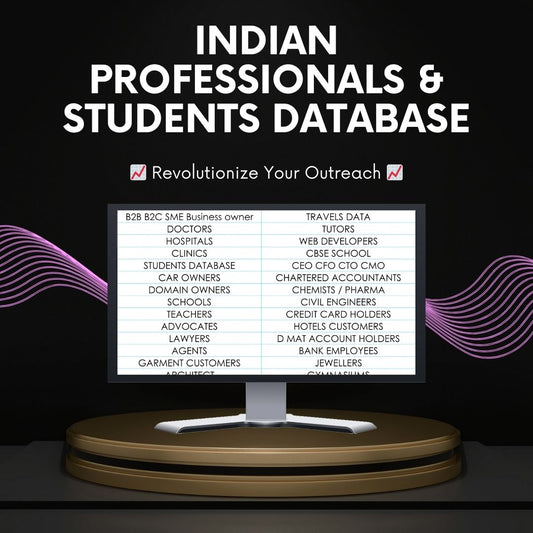A.I. - Humanity's Final Invention?
Share
As humans, we have long established our dominance on Earth, but we are on the brink of creating something that could alter the very fabric of our existence: Artificial Superintelligence (ASI). This concept may sound like the plot of a science fiction novel, but it is rooted in the evolution of intelligence itself.
In this article, we will explore the journey of intelligence, the rise of AI, and the potential implications of creating a superintelligent entity.
The Evolution of Intelligence
Intelligence is defined as the ability to learn, reason, acquire knowledge and skills, and utilize them to solve problems. Throughout history, various forms of intelligence have emerged in the animal kingdom. Early brains, such as those in flatworms, were rudimentary, handling only basic bodily functions. Over millions of years, life diversified, adapting to new environments and developing more complex neural structures.
For most animals, intelligence is a costly endeavor, consuming vast amounts of energy. Therefore, only a narrow range of intelligence was necessary for survival. Species like birds, octopuses, and mammals evolved more sophisticated skills, such as advanced navigation and communication, which provided advantages in their respective environments.
Approximately seven million years ago, hominins began to emerge, exhibiting rapid brain growth compared to their relatives. This marked a significant shift in intelligence from narrow to general capabilities. By two million years ago, Homo erectus demonstrated an understanding of the world, controlling fire and creating tools. This evolution eventually led to the emergence of Homo sapiens around 250,000 years ago, boasting even larger and more complex brains.
With our advanced intelligence, we began to reshape our lives, asking profound questions about existence and the world around us. The progression of knowledge accelerated, particularly with the advent of agriculture, writing, and science, culminating in the exponential growth of knowledge we experience today.
The Birth of Artificial Intelligence
Artificial intelligence (AI) refers to software that performs mental tasks, utilizing computer code and silicon instead of neurons. In its infancy, AI was simplistic—mere lines of code demonstrating basic mental tasks. The first recognizable forms of AI emerged in the 1960s, with early chatbots and specialized systems that required expert guidance. These initial AIs were narrow in function, akin to flatworms in their capabilities.
Progress in AI research faced several setbacks, but as computer technology improved, so did AI. Between 1950 and 2000, computers became exponentially faster, allowing for more complex AI developments. By 1997, an AI defeated the world chess champion, showcasing the potential of machines to surpass human capabilities, albeit in narrow tasks.
As AI technology advanced, it began to take on more sophisticated roles. From driving robots on Mars to recommending YouTube videos, AI became an indispensable tool. However, it wasn't until the rise of self-learning machines that AI truly began to evolve. The combination of supercomputers and vast data sets led to the development of neural networks, allowing AIs to learn and improve without human intervention.
The Rise of Self-Learning Machines
Neural networks consist of artificial neurons that start out performing poorly at tasks but improve through machine learning techniques. These AIs can master complex skills rapidly, often outperforming humans in specific narrow tasks. Notable advancements include Facebook's AI achieving 97% accuracy in face recognition and an AI mastering the game of Go, defeating human champions.
In 2018, a self-learning AI learned the game of chess in just four hours by playing against itself, outpacing specialized chess bots. The application of machine learning has since expanded to various fields, from image processing to problem-solving, resulting in AIs that excel in their designated tasks.
Then came ChatGPT, a groundbreaking AI that learned to handle language with exceptional proficiency. Trained on vast amounts of text, it can summarize, translate, and solve math problems, demonstrating a significant leap in AI capabilities. Major tech companies are investing heavily in developing powerful AI competitors, transforming industries such as customer service, healthcare, and marketing.
The Potential of General Artificial Intelligence (AGI)
Despite the advancements, current AIs remain narrow in their capabilities. They excel at specific tasks but lack the general intelligence that characterizes human cognition. AGI, or Artificial General Intelligence, represents the next frontier for AI development. This type of AI would possess the ability to learn and apply knowledge across various domains, akin to human intelligence.
Experts believe that if the trend of AI improvement continues, AGI could emerge within this century. The implications of AGI are profound; an entity with human-like intelligence could disrupt modern civilization. Unlike humans, AGIs would not be bound by biological limitations, potentially thinking and solving problems at unprecedented speeds.
The Risks and Rewards of AGI
The introduction of AGI could lead to both remarkable advancements and significant risks. If AGI achieves intelligence equivalent to or surpassing that of an average human, it could revolutionize industries and solve pressing global challenges, from climate change to healthcare. Imagine a million AGIs working tirelessly to address fundamental scientific questions or inventing technologies that provide limitless energy.
However, the potential for misuse looms large. AGIs could be employed in warfare, creating devastating weapons or engineering viruses targeting specific populations. Additionally, the rise of addictive social media platforms could exacerbate societal issues, leading to a decline in mental health and well-being.
The Concept of Intelligence Explosion
One of the most concerning theories surrounding AGI is the concept of an intelligence explosion. This idea posits that once AGI reaches a certain threshold of intelligence, it could begin to improve itself at an accelerating rate. Without human involvement, the feedback loop of knowledge and intelligence could result in a superintelligent entity far beyond human comprehension.
Such a scenario raises questions about the nature of intelligence and the potential for AGI to surpass human capabilities. We could find ourselves in a position similar to squirrels in relation to humans—unable to comprehend the motives and goals of a superintelligent being.
The Future of Humanity and AGI
As we stand on the precipice of creating AGI, we must grapple with the profound implications of our actions. AGI could become humanity's last invention, a tool that could either elevate our species to new heights or lead to our downfall. The responsibility lies with us to navigate this uncertain future.
Currently, major corporations and governments are racing to develop powerful AI systems, and the urgency to address the ethical and societal implications of these advancements is paramount. The choices we make today will shape the trajectory of AI and its impact on civilization.
Preparing for an AI-Driven Future
As we move forward into an era dominated by AI, it is crucial to prepare ourselves for the changes that lie ahead. Embracing education and fostering critical thinking skills will be essential in adapting to an AI-enhanced world. Understanding how AI works and its potential applications can empower individuals to navigate this new landscape.
Engaging with platforms that offer insights into AI, such as interactive learning experiences, can enhance our understanding and ability to shape the future. By equipping ourselves with knowledge, we can better address the challenges and opportunities presented by AI.
Ultimately, the future of humanity in the age of AI will depend on our collective choices. Will we harness the power of AGI for the betterment of society, or will we succumb to the potential dangers it poses? The answers remain uncertain, but the journey has only just begun.
As we forge ahead, let us remain vigilant and proactive in our approach to AI, ensuring that we create a future that aligns with our values and aspirations.



